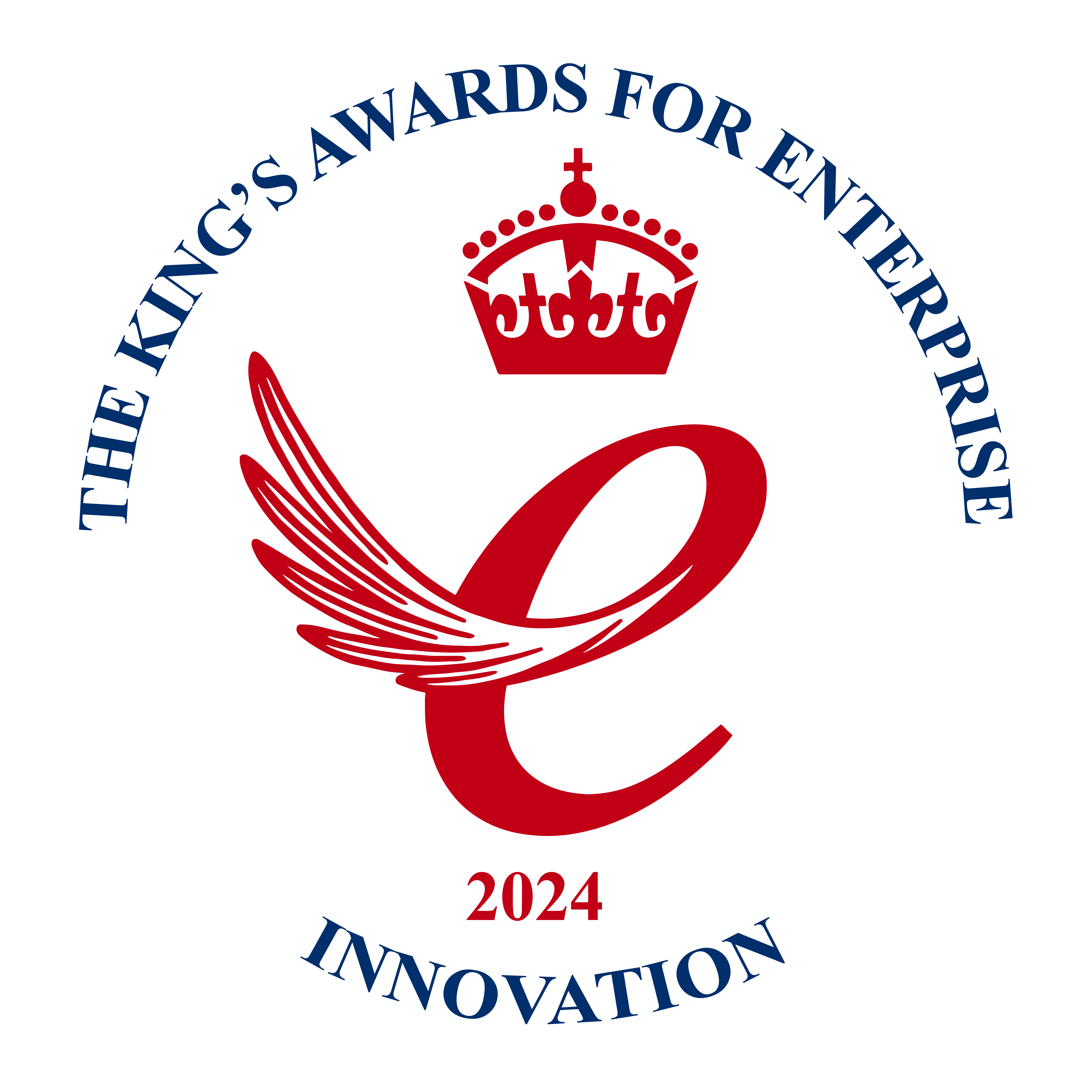How AI will impact the future of work and life
Artificial Intelligence is rapidly changing the way we live our day to day lives. It's revolutionizing our world in ways we never imagined possible, from automation to self-driving cars. But how will AI impact the future of work and life?
AI promises to bring greater efficiency and accuracy to everyday tasks, eliminating mundane routine tasks and freeing up time that can be used more productively.
Machine Learning
At its core, AI is a form of computer technology that enables machines to learn from data. It's powered by machine learning, which uses algorithms to analyse data and find patterns in the data. This allows the machines to make decisions without human intervention.
Machine Learning can be used for everything from facial recognition technology to autonomous vehicles. The possibilities are limitless, and we're only just beginning to scratch the surface of what machine learning can do.
Natural language processing
Another key area of AI is natural language processing (NLP). This technology enables computers to understand human language and respond in a meaningful way. It can be used for a range of tasks such as understanding customer feedback, analysing customer sentiment, translating text from one language to another and more.
NLP has the potential to revolutionize how we communicate with machines and it can help to improve customer service and enable more efficient communication.
Automation
One of the most obvious impacts AI will have on our lives is automation. Automation is the process of using machines or computers to handle tasks that would traditionally be done by humans. This could include anything from driving a car to sorting through large amounts of data.
Automation can help to reduce errors, increase efficiency and accuracy, and free up valuable time for people to focus on more important tasks and eliminate boring repetitive tasks for many workers.
Artificial Intelligence in the workplace
There are many jobs AI can do more efficiently and accurately that human workers. It can also help to automate tedious processes that require a lot of data entry or manual labour. AI can save businesses time and money, while also providing better results than a human workers could provide.
Increased Safety in Hazardous environments
AI-powered systems can be used to increase safety in hazardous working environments such as manufacturing plants, as they are able to detect potential hazards quickly and accurately. This could help to reduce the number of accidents and injuries at these sites.
AI-powered robots can also be used to perform dangerous tasks such as welding or cleaning up hazardous materials, which can help companies to increase safety while simultaneously increasing productivity.
AI can also be used to monitor the health and wellbeing of workers, enabling employers to identify any issues that may arise quickly and allow them to take action before an accident occurs.
Administrative assistant
AI is used to create virtual administrative assistants. These digital assistants can help with tasks such as scheduling, sending emails and managing appointments.
These assistants are becoming increasingly popular in the business world, helping to free up time for more important work and reduce errors.
Web and Marketing
Ai is can perform tasks such as the ability to write code, which is revolutionizing the software development industry by providing developers access to more sophisticated tools.
Ai is also used to create content using software such as jasper.ai and analyse data for marketing purposes. This can include anything from designing websites to analysing customer behaviour and using the acquired data to build better campaigns.
Healthcare
AI is being used in a variety of ways in healthcare, such as diagnosing illnesses, monitoring vital signs, providing medical advice and even performing surgery.
Using software such as IBM Watson, healthcare providers can analyse patient data and provide more precise diagnoses. AI can also be used to detect signs of disease or abnormalities in medical images.
AI is helping to revolutionize the healthcare industry by providing faster, more accurate diagnosis and treatment options.
Education
In the future, AI will be used to help automate the education process. This could include anything from creating personalized learning experiences for students to providing access to a virtual tutor, AI can also help to automate grading and assessment processes, saving time for teachers and allowing them to focus on more important tasks.
Robotics
Robotics has long been used in factories, warehouses, and other industrial settings.
But AI is rapidly changing the landscape of robotics.
Robots are becoming increasingly advanced with motion sensors, facial recognition technology, and other features that enable them to help with a variety of tasks.
Robotics and AI are especially useful in manufacturing, where robots can perform complex tasks more quickly and accurately than humans. This enables companies to produce more goods in less time, leading to higher profits.
Many car manufacturers use robotics to assemble cars with greater accuracy and efficiency.
Robotics and AI have also revolutionized the logistics industry, enabling companies to deliver goods faster than ever before.
Big Data
AI also helps with the analysis of large amounts of data. With so much information available online, it can be difficult to make sense of it all. AI can help by sifting through the data, identifying patterns, and providing insights into how the data can be used.
Big data is incredibly useful for businesses as it enables them to better understand their customer base, identify trends, and develop strategies based on those insights.
Construction
AI is also being used in the construction industry. Self-driving vehicles are being used to help with tasks such as surveying, mapping, and clearing land for roads or buildings. It can also be used to monitor workers on site and ensure safety standards are met.
AI cameras and sensors such as Safety Shield, Ai can detect humans and alert drivers of HGV's and avoid any accidents before they happen.
AI can even be used to create 3D models of buildings that will enable architects and engineers to build more efficient, cost-effective structures.
AI Cameras and Security
AI-powered cameras are becoming increasingly popular. This technology can be used for anything from facial recognition to surveillance and monitoring systems.
This type of camera is incredibly useful in construction as it can map out a field of view and send alerts of any possible hazards or dangers. It is also great in security settings, as it can detect threats and alert authorities before a situation escalates. It can also be used in retail stores to monitor shoplifters and protect customers’ personal information.
AI cameras can also help with traffic management, as they can detect when drivers are breaking the speed limit and alert authorities when necessary.
E Commerce
AI can be used in the e-commerce industry. AI chatbots are becoming increasingly popular for customer service, as they provide real-time feedback and guidance to shoppers.
AI is also being used to analyse consumer behaviour, allowing companies to develop better marketing strategies and product recommendations tailored to individual customers. This can help businesses increase sales by providing customers with products
Improve customer feedback
AI can also be used to improve customer service by analysing customer feedback and helping to identify customer needs more quickly. This enables companies to make adjustments to their products and services in order to better meet customer needs.
AI can also detect when customers are unhappy with a product or service, which allows companies to address customer complaints more quickly and efficiently.
Workforce Development
AI also provides greater opportunities for learning and development as it can assess the skills and knowledge of employees which allows employers to identify areas for training and development. This can result in increased job satisfaction, engagement and loyalty from employees.
Problem Solving
Ai has the ability to solve more complex problems and can identify patterns and can help to predict market trends so that businesses can gain insights into consumer behaviour and make predictions about market trends. This can help them to make better decisions about how they should invest their resources and plan for the future.
Economic growth
One of the most promising aspects of AI is its potential to drive economic growth and create jobs.
AI can help to automate processes in various industries, which will lead to increased efficiency and productivity. It can also help businesses make better decisions and find new opportunities for growth.
In addition, AI-driven automation could potentially free up time for employees to focus on more creative, strategic tasks that can lead to new jobs and opportunities in the workplace.
Cost Savings
AI can also help businesses to save costs by reducing the need for manual labour and increasing efficiency. For example, AI-powered chatbots can handle customer service inquiries quickly and accurately with minimal human intervention. This kind of automation can result in significant cost savings over time as it eliminates the need for extra staffing or training.
AI in our everyday lives
In addition to the workplace benefits, AI systems have the great potential to improve our lives outside of work too.
Smart Home
Smart home technology includes devices such as:
Voice-activated assistants - such as Google Home and Amazon Alexa
Smart thermostats,
Smart Lights
Security systems,
Smart Blinds
And Energy-efficient appliances.
This technology enables us to automate mundane tasks such as turning off the lights and setting temperatures, freeing up our time for more important activities.
It can also provide security by monitoring our homes and alerting us if there is any suspicious activity.
Shopping Made Easy
AI has also made shopping easier and more convenient. It can be used to recommend products based on our preferences and even analyse purchase history to make sure we always have the items we need when we need them. This can save us time and money, as it eliminates the need to search for products or compare prices.
Will AI replace Human Workers?
Artificial Intelligence has the potential to revolutionize our lives and improve how we work and live. However, this does not mean that AI will replace human intelligence any time soon.
Humans will remain the ultimate decision-makers because they are capable of thinking creatively and using their intuition to make decisions that cannot be replicated by machines.
That being said, it is important to remember that AI can supplement human intelligence, allowing us to make more informed decisions and allow us to achieve better, faster results.
To add to that, a whole industry has grown around AI, with AI consultants and engineers being in high demand.
Negative Impacts of Artificial Intelligence
While there are many potential benefits to AI, it is important to consider some of the risks associated with its use. For example, AI could lead to job displacement as it replaces human labour in certain sectors meaning the job market could become more competitive.
Also, AI systems can be biased if they are not designed properly and this could result in decisions being made that are unfair or discriminatory.
It is essential for companies to ensure that their AI systems do not discriminate against individuals or groups based on gender, race, or other factors.
Finally, AI-driven automation could lead to people becoming more dependent on machines for decision making, which could ultimately reduce our creative thinking capabilities.
The Future of AI
The success of AI will rely heavily on data scientists, as they are responsible for developing and maintaining the algorithms that enable AI systems to function effectively.
Data scientists need to understand both the technical aspects of AI as well as its implications in terms of privacy and security. They must also be able to anticipate potential problems with AI-powered systems and take steps to address these issues before they become a problem.
Conclusion
AI is an incredibly powerful technology that has the potential to revolutionise the future of work and how we live. It has the potential to improve routine tasks, reduce costs, increase efficiency, create new job opportunities, improve customer feedback and more. However, it is important to consider both the potential positive and negative impacts of AI before implementing it in our lives to ensure that we are making the best use of its capabilities.
AI has the power to completely transform how we work and live, but it is important to remember that humans will remain at the heart of decision-making. Only by using AI responsibly can we ensure that it benefits everyone in society.




















